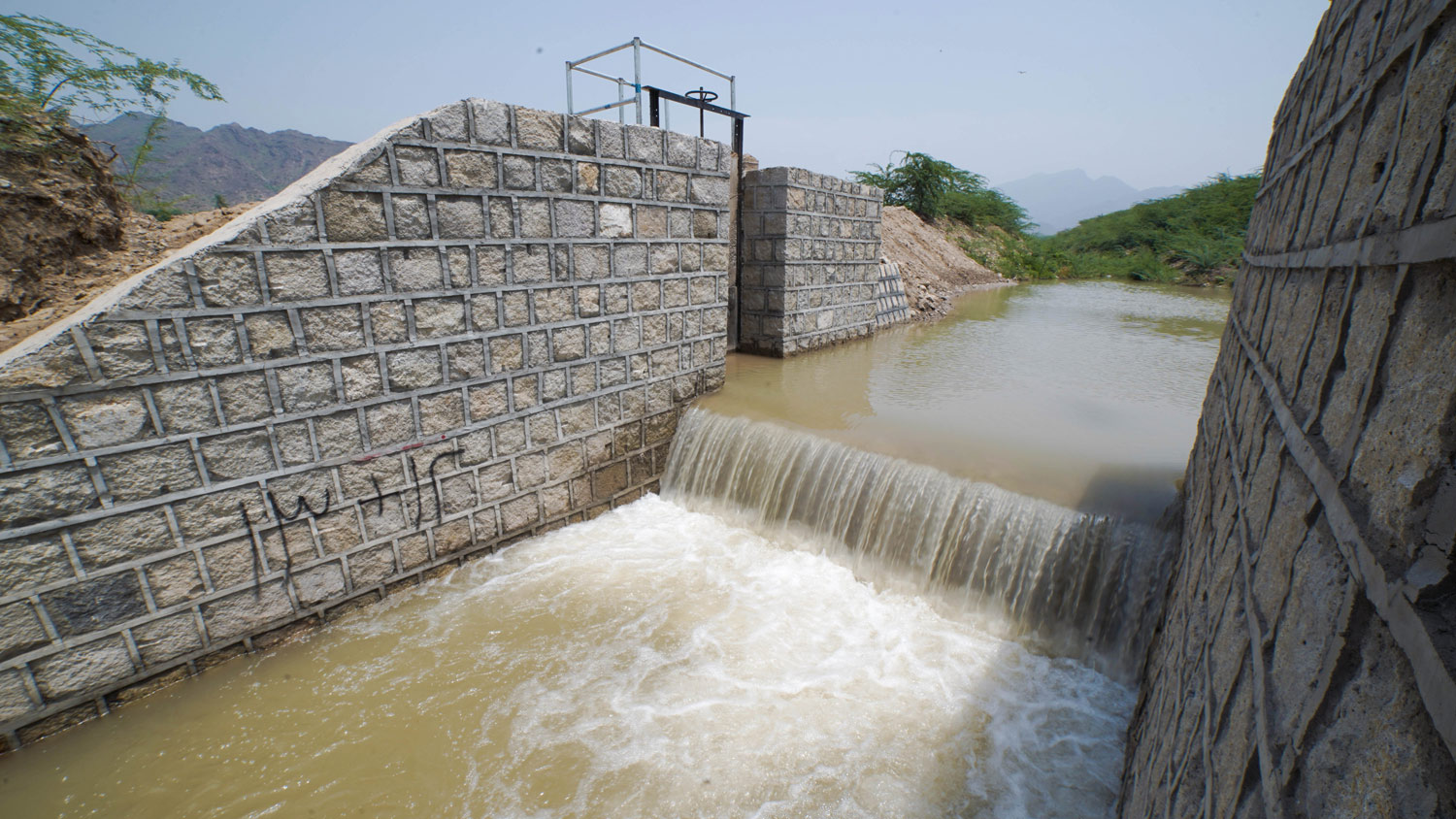Land represents life for Yemeni farmers, and its degradation poses a threat to the livelihoods of the vast majority of people who depend on it for their daily sustenance. Farmers in Hodeidah, Abyan, Lahj, Hajjah, Amran, and Shabwah share common hardships.
Mohammed Salah Sultan, a farmer from Wadi Qatoof in Hajjah, and Hamid Saeed Al-Awlaki from Wadi Dhara in Shabwah, both testify to the harsh effects of climate change and recount how recent floods have swept away their farms and crops. Mohammed Sultan explains that the recent floods in Wadi Qatoof, unlike anything seen before, have caused significant damage to agricultural lands, as these lands are not elevated above the Wadi-bed level. The floods have swept away both land and crops, which he attributes directly to changing climate patterns. Sultan notes that, until a few years ago, farming practices and the land itself remained unchanged for generations. The current situation of destruction and loss only began to occur recently due to human-driven climate change.
An Agricultural Disaster
Farmers such as Mubarak bin Ahmed from Wadi Tuban in Lahj, Zahir Saleh from Majhafa in Abyan, Saleh Moqbel from Wadi Seham in Hodeidah, and Jubran Abdullah from Amran, all confirm that their agricultural lands have been passed down through generations, cultivated and protected from floods as commonly practiced in each valley. Elders never reported floods of such severity, and even the current generation had not witnessed such devastation until recent years. Today, however, floods reach homes, sweeping everything in their path. Dozens of livestock have perished, numerous homes have been destroyed, and hundreds of hectares of farmland have been lost, presenting a life-threatening phenomenon for thousands of farmers.
Ensuring Dignified Living
Projects aimed at protecting land- such as agricultural protective walls, floodwater distribution channels (and gabion barriers), flood breakers, and rainwater harvesting tanks implemented by the PWP- have provided effective interventions and economic solutions. Beneficiary farmers have witnessed tangible improvements, as these measures protect their lands from erosion and burial. Additionally, these projects have enabled them to channel large quantities of floodwater for irrigating vast agricultural areas, recharging wells, and storing water in rainwater harvesting tanks for use during dry seasons.
Farmers agree that the implementation of such projects yields significant benefits, improving the livelihoods of rural residents who rely on the land as their primary source of income. As articulated by Mubarak bin Ahmed, agricultural land protection projects, floodwater distribution channels, and rainwater harvesting tanks are critical interventions to help Yemeni farmers adapt to and cope with climate change. They also support the local production of food, as cultivating the land ensures the daily provision of vegetables, grains, fruits, and the raising of livestock and animals such as cattle and sheep- thereby providing a dignified life for the entire community.




